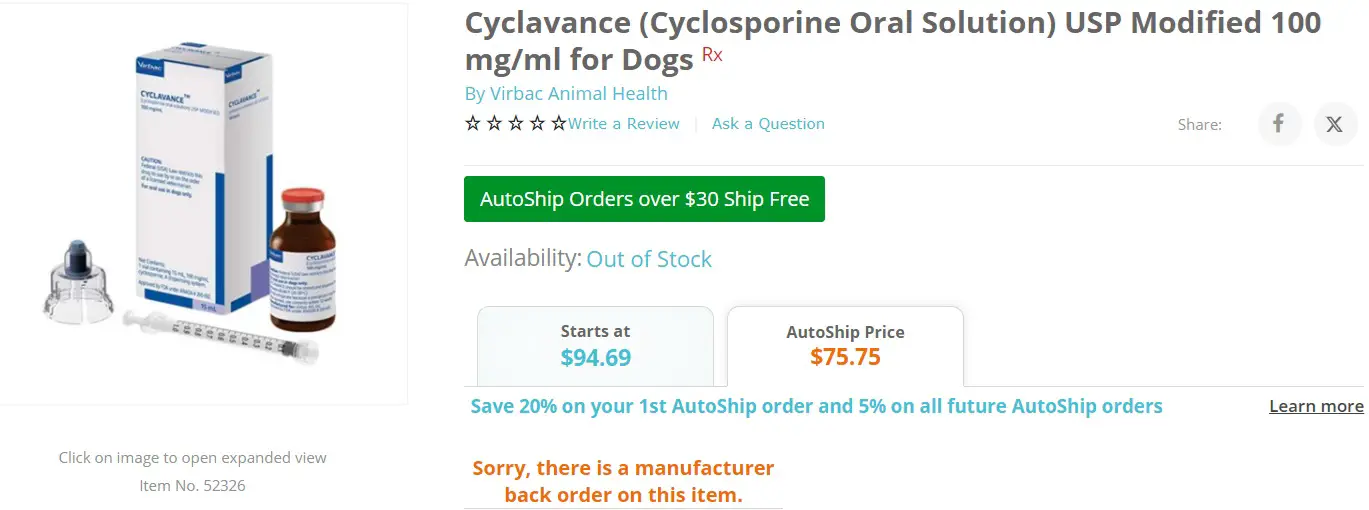With a major veterinary magazine deadline looming, I spent time reading in full the latest thinking about itchy dog relief from the new 2023 AAHA Management of Allergic Skin Diseases in Dogs and Cats Guidelines. A few things jumped out at me, including how apparently cranky and impatient we are as veterinary clients when dogs develop symptoms of allergic skin diseases.
Itchy Dog Relief Real Talk
Diagnosing and treating allergic skin disease in pets is frustrating for clients and difficult for veterinary teams. Pack your patience and get used to it. The guidelines introduction includes the following statements:
- "Because of the complex nature of allergic skin disease, diagnosis can be time-consuming and may require multiple follow-up visits before a final diagnosis is achieved."
- "Because atopy is a diagnosis of exclusion, the process may be time-consuming and frustrating for clients. Clear communication regarding timelines and expectations is crucial for successful results."
Initial Steps Toward Itchy Dog Relief
In the medical world, "pruritus" just means itchy and getting itchy dogs relief to that annoying and sometimes painful symptom is critical to quality of life and the ability to find the possible causes and potential solutions. "Atopy" means essentially a true allergic response. The diagnostic process for itchy or allergic dogs typically starts with getting:
- A super detailed history of the dog's symptoms, timelines, attempted treatments (at home or otherwise), frequency and/or patterns of symptoms
- Physical samples of the affected areas (typically skin, mouth, feet, and ears) that can be analyzed ... called "cytology" ... the collection of those sample results = your dog's dermatology database
- Checking for external parasites
- Checking the samples for signs of secondary bacterial and/or yeast infections (those complicate things a lot)
The guidelines include flowcharts that direct veterinary teams through the process of choosing treatments for itchy dog relief and then evaluating what's working (or not) << that's a link, if you want to take a look.
There's a whole protocol for food allergy trials that probably deserves a separate article.
Dogs with allergic otitis externa (ear problems, including frequent infections) also probably deserves a separate article.
Rechecking Possible Allergic Dog Treatments
Expect to schedule and attend veterinary recheck appointments to assess relief (or not) for your itchy dog about 14 days after starting each suggested treatment plan. Tweaks or new ideas may be required, which means another recheck ... and another, etc. Until things start working.
If you're concerned about side-effects of oral medications, sometimes increasing medicated baths or other topical medication application can help you avoid those oral meds, if your dog responds well to topical options.
What About Dog Allergy Tests?
This topic of dog allergy tests probably needs it's own post as well, but this quote from the guidelines jumped out at me:
- "Intradermal and serum allergy testing are NOT used to diagnose atopy. It should only be used if the client is interested in administering allergy immunotherapy."
Also know that it may take up for a year for allergy immunotherapy (shots or sublingual) to show effect.
Also, the OTC and other dog allergy tests are not accurate, so only do the ones a veterinary dermatologist recommends. While I'm in the middle of a medical mystery tour myself, I know how frustrating it is NOT to know the WHY, the cause, of what's happening, but you need to resolve yourself maybe to never 100% knowing every specific thing that causes your dog's allergies.
Dog Allergy Flares
This part may be the most realistic and important thing for people with itchy dogs to understand:
- "All atopic dogs will experience allergic flares regardless of how well managed they are."
- "... Remind owners that treatment does not just stop working once it has been determined to be beneficial; rather, the [pet] may need a bit of extra support during these episodes."
Yep. No matter how well your allergy or itchy dog is doing, depending on dermatology situation, they will at some point develop allergy flare-ups. For some dogs, it's seasonal, which means they may need more support certain times of year. For other dogs, it might be harder to figure out the pattern. HOWEVER, flare ups are NOT failures.
Repeat after me ...
Flare ups are NOT failures, so don't blame yourself. Don't blame your veterinarian. These things happen. Don't freak out or get discouraged.
Referral to Veterinary Dermatologist for Itchy Dog Relief
I've said before that I honestly feel like the sooner you go see a veterinary dermatologist, the better. The guidelines say a referral to a veterinary dermatologist often happens after 3 visits with your primary care veterinarians "if adequate control of clinical signs cannot be achieved."
The challenge is that there are not very many veterinary dermatologists, and you may need to wait for many weeks or even months to see one. Still, it's very much worth it, and there's data that shows it can actually end up being less expensive overall (maybe 25% or more less) vs lengthy trial and error with your main veterinary team.
Wow! Veterinary Clients Getting Pissy
So, that 3 visits with your main veterinarian recommendation, then veterinary dermatologist? Well, it turns out that's the "tipping point" for 73% of veterinary clients. They get super frustrated at that point, and 18% of them leave the veterinary hospital for another, including for all other routine veterinary care.
Let me say that again. some people essentially FIRE their veterinarians over lack of itchy dog relief.
That's [insert swear word or adjective of your choice here].
You see ... allergic dogs, dermatology dogs, itchy dogs pose VERY difficult and complicated cases to veterinarians to figure out and treat. Nothing that happens is a failure on their part. It's simply because this is tough stuff that requires lifelong maintenance in many / most cases. It's also the #1 reason for veterinary appointments for 11 years running, according to pet insurance claims from Nationwide.
The new guidelines, in fact, conclude:
- "With most of these patients, this is the start of a long journey, and clients should be informed that there are likely no quick fixes or cures, only lifetime management strategies."
Our Own Experience - Not Itchy Dog, but Still
As the Mom of a dermatology dog with an autoimmune skin condition (not really allergy-ish, but still), I know all too well how long it takes to figure things out and see real improvement. It essentially took us around 3 years to reach a long-term, stable level with our youngest, Mr. Stix.
Granted, that's a lot longer than usual because we chose treatment safety over speed. Still, it took a lot of patience, and the process required me to ACCEPT (not easy, not entirely yet) that his skin will NEVER look completely smooth and pink again. I miss his perfect, permanent nakey spot. I really do. It was so smooth and soft and warm. *sigh
The trick in Mr. Stix's case is a combination of oral and topical medications, and the real nuance comes from giving him one oral medication (immune suppressant) in both pill and liquid form so that we can inch up his dose in smaller increments. The gel-caps only come in 25 mg and 50 mg dose, and he didn't have a great response to 75 mg. It made him seem a little neurologically off. So, he gets one 50-mg gel-cap + a tiny bit of liquid each morning that totals about 60-65 mg.
Unfortunately, the liquid version is out of stock pretty much everywhere due to manufacturing issues right now (January 2024), so fingers crossed he continues to hold steady during the winter season with just 50 mg per day.
I've alerted our veterinary dermatology team. They said to let them know pronto if he starts getting worse before the liquid med is available again so that they can work on other ideas. For now, I'm mostly adding a topical moisturizer to keep the skin protected with the cold temps, wind, drying heating system, etc.










Everything you've mentioned is true. Rather than play the guessing game on what he was allergic to, I had the allergy testing done for environmental allergens. I do the immunotherapy injections on my Golden. I have all the specialized shampoo's and cream rinses. (Bath every 2 weeks, and I wish he wasn't 80ish lbs) For us, late summers are his 'bad time." As much as I don't like to do it, I also give Cytopoint injections every 7 or so weeks during the "bad" times. It's very helpful and makes his comfort level extremely manageable. As much as I hate to clip his fur, I generally keep it to 2" long on his body and I clip the fur on his feet weekly in an attempt to keep them dryer.
That sounds like you have a good management plan in place. It’s so hard to keep up with the bathing and grooming when they are SO big and have thick double-coats. Mr. Stix does get a daily zyrtek (OTC allergy pill), but his issues really are not allergy related per se. He does get flare ups seasonally though, so maybe. We’re *finally at a point where we only see the dermatologist once a year now, but I have access to his team via email as needed for advice and help … like with the medicine being out of stock.